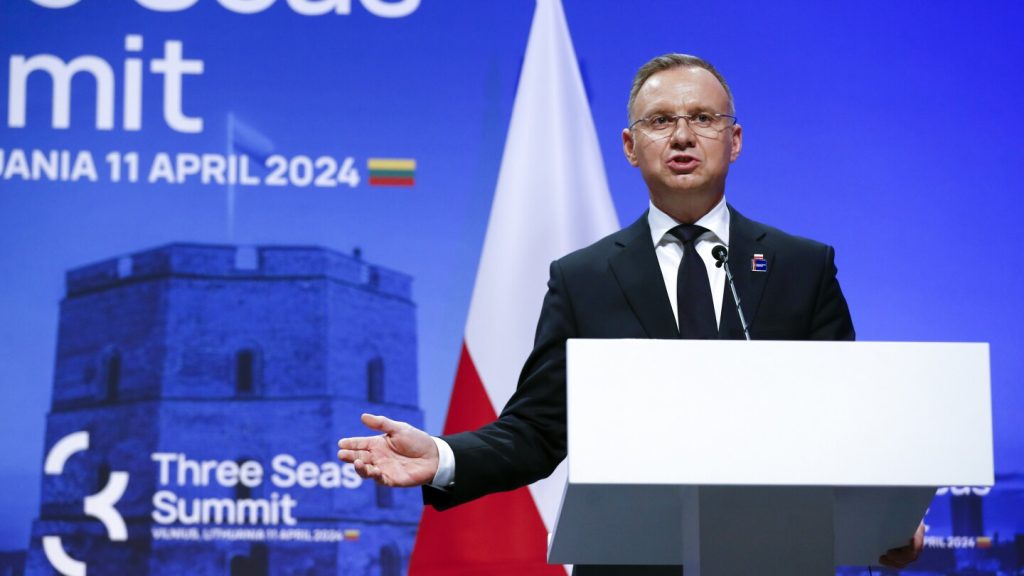The article discusses the upcoming meeting between presumptive Republican presidential nominee Donald Trump and Polish President Andrzej Duda in New York. European leaders are concerned about the possibility of Trump winning the November election, especially given his critical comments about NATO and Russia. Duda, a right-wing populist, has encouraged the United States to send additional funding to Ukraine to combat Russian aggression, a move that Trump has spoken out against. However, Trump recently suggested that he may support additional funding in the form of a loan, signaling a possible shift in his stance.
Trump is currently in New York for the beginning of his criminal hush money trial, making it challenging for him to campaign. He is the first former U.S. president to stand criminal trial, adding to the controversy surrounding his presidency. Republicans in Washington are divided over a foreign aid package for Ukraine, Israel, and other allies, with Trump’s “Make America Great Again” movement criticizing the funding for Ukraine. Trump’s praise of Russian President Vladimir Putin and his softening stance on Russia have further complicated the situation.
Trump’s past comments about NATO and Russia have raised concerns among European leaders, particularly with regards to Article 5, which states that an armed attack against one NATO member is considered an attack against all members. Trump’s threat to encourage Russia to act against NATO members who don’t spend enough on defense has caused alarm within the alliance. British Foreign Secretary David Cameron and Hungary’s Prime Minister Viktor Orban have also met with Trump, indicating a wider courtship of the former president by Russia’s European allies.
The meeting between Trump and Duda comes at a time of heightened tensions within NATO and concerns about Russian aggression. Duda’s push for additional funding for Ukraine and Trump’s shifting stance on the issue will likely be key topics of discussion during the meeting. Trump’s influence on the GOP’s foreign policy and his praise of Putin continue to shape the debate over U.S. relations with Russia and other allies. The outcome of the meeting could have significant implications for future U.S. foreign policy decisions and the relationship between the U.S. and its European allies.


